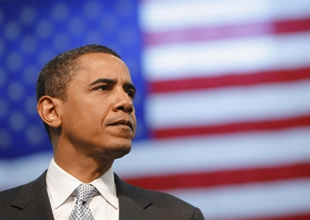Rome, 5 November 2008 - Hunger and the global food crisis are but among hundreds – maybe thousands – of policy initiatives competing for time and space on the Obama agenda this morning. They deserve to make the cut. The risk is that the global economic crisis – and the knee-jerk desire to pull inward – will prove the conventional wisdom right: That the world’s 923 million hungry will get hungrier as the financial crisis works its way through the international system – a prediction that, if true, could see hundreds of millions of children fall short of their physical and mental potential and produce a new wave of civil unrest. The political establishment has seemed oddly ready to accept this dire prediction without much of a fight. Obama should not. He has an opportunity to reposition food security as the critical foreign policy issue it is, and to take on the global food crisis with the same vigor that policy makers embraced the financial crisis. To do so, there are several things his administration should bear in mind: First, that competition for food and water will overtake competition for oil in both severity and significance in the next decade. The drivers of demand for food remain, chief among them, increased population growth; growing demand from the less-developed world; and crops being grown for fuel rather than food. Falling prices won’t change any of that. Meanwhile, exciting supply-side solutions are underway, but are not imminent. Second, that hunger is directly tied to civil unrest. As food prices climbed last year, we saw more than 30 riots around the world as hungry people let their despair slip into anger and then violence. In Haiti, 20 people were killed and a prime minister was driven from office. We watched the government of Egypt struggle as the price of bread climbed and people took to the streets. A hungry man is an angry man. Third, that when people get hungry enough, they move, in search of a better place, and populations on the move are more prone to conflict. Fourth, a ray of hope: Nourishing people – particularly children – is a step toward building the next generation. The science overwhelmingly shows that proper nutrition for children – particularly, but not exclusively from womb to age two – increases potential for physical and mental development. In other words, children who get proper nutrition are taller, smarter and stronger with stronger immune systems. And these are the children who grow into adults and take the helms of their countries and become part of the global society grappling with problems ranging from infrastructure to climate change. The stubbornly-high raw numbers of hungry poor mask the progress that we’ve made. In the 1960s, when I was a girl, the percentage of world hunger was about 36% -- more than a third of total population. Today that percentage is much lower – about 15% of world population. True, the world is a much bigger place now, en route to getting bigger as world population climbs to 9.1 billion by mid century. But that’s all the more reason to hold the line and prevent that downward trend line in hungry as a percentage of world population from reversing. To allow, now, the financial crisis to become the excuse for tossing up our hands and watching hunger multiply is foolish at best, tragic at worst. The developed world that produced $1 trillion to rescue financial institutions in a few short weeks, could surely find $3 billion to feed the 59 million hungry children attending school worldwide, or the $6 billion to fund the work of the United Nations World Food Programme. Or even the broader ask -- $30 billion – for short-term hunger needs in tandem with longer term supply-side improvements aimed at increasing agricultural production. The financial crisis showed us that money is available when the world thinks it matters. President Obama has a chance to give hunger its rightful place on the foreign policy agenda. He shouldn’t miss it. Nancy Roman is the Director of Public Policy Strategy for the World Food Programme. She previously served as the Vice President of the Council on Foreign Relations | 
